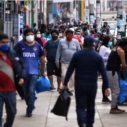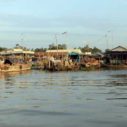
Search
Articles

Eight companies in Costa Rica receive an award for progress in poverty reduction using the business MPI
The Business Multidimensional Poverty Index (bMPI), developed by the Costa Rican Association Horizonte Positivo is used by companies to measure the multidimensional poverty of workers and their households. Using the bMPI, companies can create initiatives that go beyond income to improve the lives of their employees. In 2020, Horizonte Positivo recognized eight firms in Costa Rica for their successful implementation of the bMPI programme.

The Revised Arab MPI: Multidimensional Poverty Index for Arab countries
In December 2020, the League of Arab States Social Ministerial Council endorsed the ESCWA-proposed Revised Arab MPI framework as a formal tool for monitoring and tracking multidimensional poverty, and the basis for the second interagency report on multidimensional poverty in Arab countries. This article briefly reviews the process that led to its formal adoption, the structure of the index, and the profile of poverty in Arab countries according to this index.

Going beyond the global MPI: a new international measure for moderate poverty
The 2030 Agenda set clear goals for sustainable development. In order to ‘end poverty in all its forms everywhere’, countries need to secure long-term improvements across multiple areas of life including health, education, living standards, and employment, among others. This requires governments to go beyond reducing acute deprivations and work to guarantee enhanced livelihoods for all*.

Multidimensional poverty in Latin America and the Caribbean: trends and projections prior to the COVID-19 pandemic
The repercussions of the current COVID-19 pandemic are presented to us daily in multiple ways. The adverse social effects of the crisis are chief among these and have already disrupted many aspects of poverty reduction. Against this new backdrop, an OPHI Briefing analyses recent trends and projections of multidimensional poverty in Latin American and Caribbean (LAC) countries.

The Hidden Dimensions of Poverty
It is widely recognised that poverty is multidimensional and OPHI has played a prominent role towards this recognition. However, these dimensions need to be better specified and some have gone unrecognized. OPHI has identified five Missing Dimensions of poverty that deprived people cite as important in their experiences of poverty and that have been largely overlooked in large-scale quantitative work on poverty and human development: Informal and unsafe work; Disempowerment; Shame, humiliation and isolation; Physical insecurity, and Subjective ill-being. Survey modules have been developed to collect data on these dimensions. See Missing Dimensions of Poverty | OPHI.












